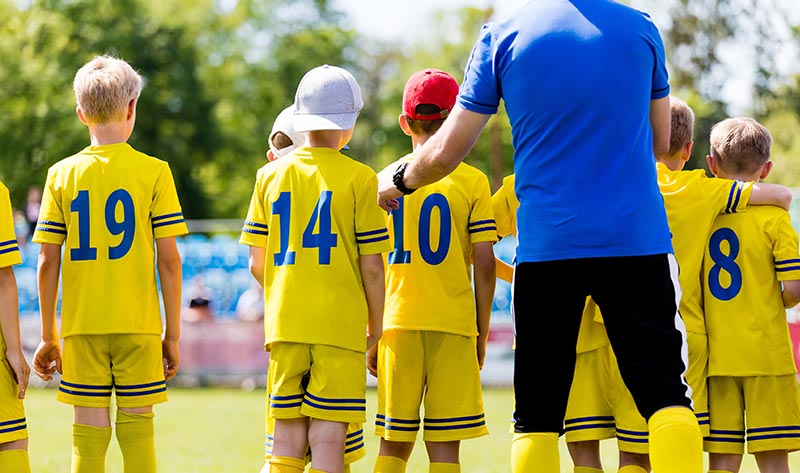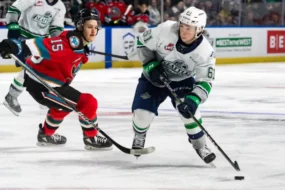
In the realm of youth sports, coaching encompasses a diverse spectrum of experiences, spanning from newcomers to those with over a decade of expertise. Nevertheless, irrespective of tenure, expertise, or proficiency, every coach shares a common goal: enhancing their players’ skills and fostering a love for soccer. What makes coaching (as well as teaching) truly remarkable is the absence of a predefined route to achieve these objectives; each individual cultivates a unique style to instruct and motivate their players. It is crucial for coaches to honor and appreciate the distinct approaches of their counterparts, all the while relentlessly working to enhance and elevate their own coaching methods.
COACHES NEED TO LEAD BY EXAMPLE
Effective coach interaction plays a crucial role in the youth sports journey as our actions serve as role models for our players. If we exhibit negative behavior towards others, it is likely that our players will emulate the same. Conversely, by demonstrating respect and grace, we encourage our players to display good sportsmanship. Therefore, it is advisable to consistently maintain composure during both practices and games, particularly in moments of heightened pressure.
HOW TO REACT TO OTHER COACHES WITH POOR BEHAVIOR
Ideally, we aspire to have our coached games against teams led by equally composed and courteous coaches. However, there are instances when this ideal scenario doesn’t materialize, and the intensity and perceived pressure on game day can overwhelm some individuals. In such situations, it is advised not to engage with the opposing coach on the sideline. Instead, please direct your concerns to your club’s administration via email if their behavior is deemed unacceptable. Recreational programs typically monitor coaches receiving consistent negative feedback and address their conduct accordingly. On a positive note, we encourage you to submit reports highlighting coaches who exceed expectations in setting a positive example. Well-managed clubs track and acknowledge the efforts of such coaches, often finding ways to recognize and reward their contributions.
SETTING A POSITVE TONE ON GAME DAY
In modeling good behavior when dealing with the opposing coach, it’s important on game day to set a positive tone right from the start. To do this:
Respectful Warm-up:
- Find your own space for warm-up, ensuring not to encroach on the other team’s area if they arrived first.
- In limited space situations, seek permission from the other coach before sharing their area.
Friendly Kick-off:
- Begin the game by greeting the opposing coach with a smile.
- Introduce yourself, engage in pleasantries, and inquire about their team and season performance.
Focused Coaching:
- During the game, limit feedback to your own team.
- Avoid direct communication with the opposing team’s players unless it involves congratulating them for notable achievements.
Post-Game Courtesies:
- Instruct your players to thank the opposing team, regardless of the game’s outcome.
- Ensure players shake hands with the other coach and the referee.
- Engage in a post-game conversation with the opposing coach, congratulating their team.
- Offer specific positive feedback, such as acknowledging their team’s strengths, e.g., “Your players’ dribbling skills were impressive!”
Positive Communication:
- Emphasize positive comments during post-game discussions, as they have a contagious effect.
- Share observations of what the opposing team did well to foster a constructive and encouraging atmosphere.
It’s important to recognize that in recreational soccer, every opposing coach is a volunteer, giving their best efforts to support their players. They, like the rest of us, are susceptible to making mistakes but are committed to enhancing their players’ soccer skills and fostering a love for the game. Let’s collaborate in achieving our shared goals by acknowledging our roles in the lives of the players and responding accordingly.







